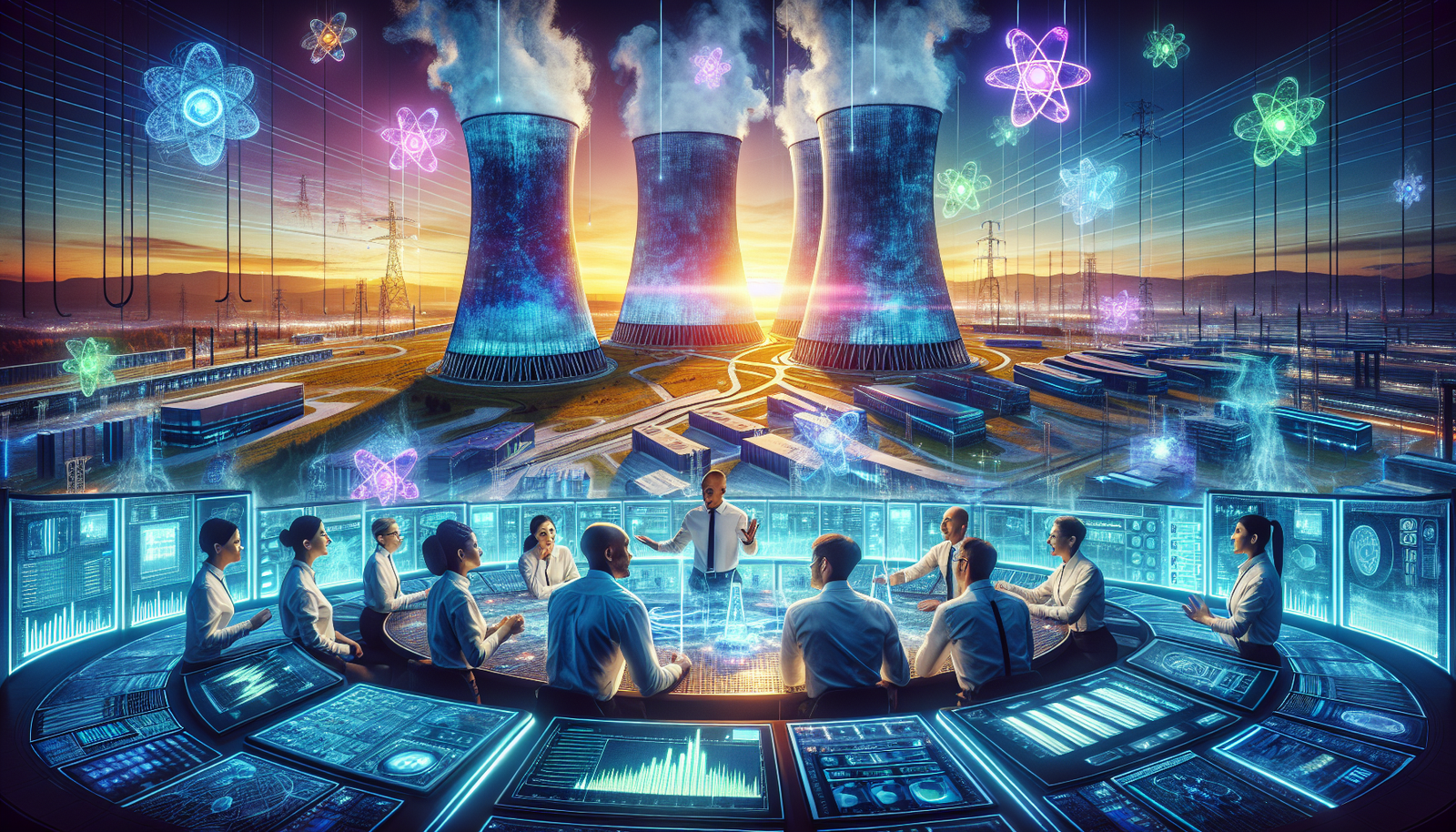Google takes a bold step by partnering with Kairos to secure a supply of nuclear energy. This unprecedented move engages the tech firm in the quest for sustainable energy solutions to power its AI data centers.
Small modular reactors are emerging as an innovative alternative to traditional energy sources. This agreement marks a significant evolution in the energy supply model of tech companies.
At a time when sustainability and energy efficiency are becoming major priorities, Google positions itself as a pioneer, anticipating the future needs of an ever-demanding digital infrastructure.
Revolutionary agreement between Google and Kairos Power
Google, the tech giant, has recently signed an unprecedented strategic agreement with the American start-up Kairos Power. This collaboration aims to supply the company with nuclear energy for its data centers dedicated to artificial intelligence (AI). The agreement is part of Google’s effort to accelerate its energy transition while meeting the growing demand for computing power.
Innovations of small nuclear reactors
Kairos Power specializes in the development of small modular nuclear reactors, designed to provide a safer and more sustainable energy source. These next-generation reactors allow for a more flexible energy production that can adapt to the specific needs of data centers. This strategic choice for nuclear energy aligns with the efforts of tech companies to reduce their carbon footprint.
Impacts on energy and the environment
Google’s initiative has substantial implications for the environment and the energy sector. The Alphabet company aims to establish green data centers, integrating renewable and low-carbon energy sources. By investing in nuclear energy, Google secures a reliable and low-carbon energy source, essential for the operation of its technological infrastructures.
Parallels with other tech giants
Google is not the only player turning to nuclear energy. Companies like Microsoft have also heavily invested in energy solutions to power their data centers. For example, Microsoft has reactivated the Three Mile Island nuclear plant to support its operations through generative AI. These billion-dollar investments aim to meet the exponential demand for computing capacities.
A sector in full mutation
The field of small nuclear reactors is gaining increasing prominence among large tech companies. The search for alternatives to fossil fuels and traditional renewable energies is driving interest in this technology. Effective utilization of nuclear resources could transform practices and deploy energy solutions that address contemporary challenges.
The future of energy and AI
With the rise of AI technologies, such as those supported by Google or Microsoft, the quest for sustainable energy becomes a priority. Small reactors, deemed real assets, provide a future pathway to power data centers while reducing carbon emissions. Similar ambitions could emerge in other sectors, underscoring the importance of nuclear energy in the global technological ecosystem.
Relevant links
In summary, the energy landscape is rapidly evolving. Microsoft’s massive investments in AI, projecting over $100 billion in leases for its data centers, illustrate this trend. For more details, see the following articles: Microsoft’s Investment in AI, Microsoft and Three Mile Island, Small Nuclear Reactors.
Frequently asked questions about Google’s acquisition of nuclear energy
Why did Google choose to purchase nuclear energy?
Google opted for nuclear energy to reduce its carbon footprint and turn to sustainable energy sources to power its ever-growing data centers.
What is Kairos Power and what is its role in this agreement?
Kairos Power is an American start-up specializing in the construction of small modular nuclear reactors that will provide Google with the nuclear energy necessary for its operations.
What are the benefits of the small nuclear reactors that Google will use?
Small nuclear reactors are designed to be safer, more flexible, and less expensive to build and operate than traditional reactors, making them ideal for meeting Google’s changing energy needs.
How can this agreement impact the energy efficiency of data centers?
This initiative is expected to improve the energy efficiency of Google’s data centers by providing them with a reliable and low-carbon energy source, thereby contributing to their sustainability goals.
When will nuclear energy production for Google by Kairos begin?
Nuclear energy production by Kairos is expected to start in the coming years, with plans spread over several development phases to ensure gradual integration into Google’s operations.
Does this agreement with Google have implications for nuclear energy regulation?
Yes, this agreement could lead to a closer examination of regulations surrounding nuclear energy, prompting a broader dialogue on the use of nuclear energy sources in the tech sector.
Will Google solely use nuclear energy for its data centers?
While nuclear energy will represent a significant portion of the energy supply, Google will likely continue to diversify its energy sources, also integrating other renewable energies.
What will be the environmental impacts of Google’s use of nuclear energy?
With the use of nuclear energy, Google hopes to significantly reduce its CO2 emissions, contributing to a more sustainable energy future, but there will also be considerations around nuclear waste management.






